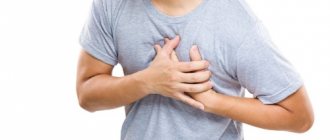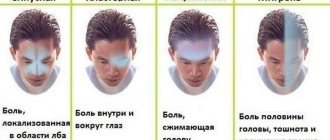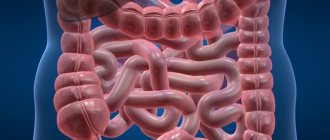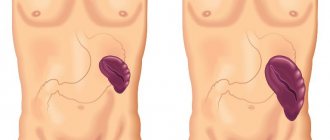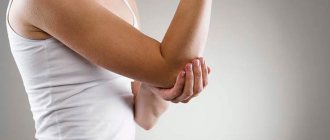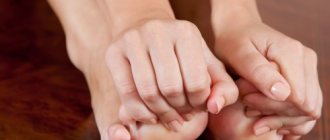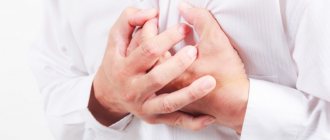If your heart hurts, you should contact a cardiologist. He will conduct a survey to find out what symptoms are bothering you and what they tried to stop them with. Having collected the necessary information, the doctor will refer the patient for a full examination. It is not recommended to refuse it due to unwillingness to pay money, since there is no other way to find out the diagnosis. Based on the results obtained, the specialist will be able to understand why a person has pain in the heart.
Often, heart pain occurs due to such pathological processes:
- heart attack;
- inflammatory diseases;
- problems with heart valves;
- pathological processes not related to the heart muscle.
It is equally important to know what pain in the chest area is. Such information will help narrow down the search and make a diagnosis faster. This list will help you figure out what they are:
- cutting;
- pulling;
- compressive;
- piercing;
- burning.
Whether the heart can hurt constantly, or whether the discomfort will manifest itself in attacks, depends on the cause of the development of the pathology. In some cases, unpleasant sensations do not leave the whole day, and sometimes they appear only under stress, but are acute. The totality of the information obtained will help the doctor create a treatment plan and accurately answer how long a person will continue to have severe chest pain.
Manifestations of a heart attack
Often, every day the heart hurts due to an impending heart attack. This disease is an acute lack of nutrition (ischemia), as a result of which myocardial necrosis (infarction) develops. Usually doctors, answering the question of why the heart hurts due to a heart attack, talk about a gradual blockage of the arteries or a detached blood clot that has blocked one of the main vessels. The development of this process is influenced by atherosclerosis, excessive physical activity, constant stress, etc. Heart pain begins to appear in patients 1-2 months before the attack. However, in some cases, for example, with a broken blood clot, the disease develops at lightning speed.
Signs of heart pain before and during an attack are usually the following:
- Constrictive pain. During an attack, it is difficult to understand where and how the heart hurts, because the pain radiates to the back, upper limb, neck and jaw. They spread mainly to the left half of the body. Heart pain is accompanied by increased sweating, vomiting and constant shortness of breath.
- Heart pain due to stress. The patient may feel discomfort after prolonged physical or mental work. His heart pain goes away only after resting or taking a Nitroglycerin tablet.
- Dyspnea. It often occurs with pain in the heart, indicating an imminent attack. Shortness of breath accompanies the patient almost constantly, for example, while lying down
in bed, during meals and after exertion. Immediately before the attack, the patient’s heart troubles him at night, which is why he constantly suffers from insomnia. - Fast fatiguability. When the heart hurts before a heart attack, the patient gradually begins to feel general weakness. Ordinary actions take more strength from him than before.
- Impotence. If a man's heart hurts due to gradual blockage of the arteries that supply the heart, then he has problems with erection. It can appear 1-2 years before the attack.
- Edema. This sign is the main one for people who want to know how to identify pain in the heart. The most noticeable swelling, indicating disturbances in the functioning of the heart muscle, is in the legs.
- My heart hurts in the morning. Developing myocardial ischemia is often accompanied by this symptom. Sometimes the patient experiences high blood pressure.
- Apnea. The patient's heart may bother him at night, and this manifests itself in the form of short-term stops in breathing.
If you have any doubts, it is better to consult a doctor. He will tell you how to distinguish pain in the heart during an attack from other pathological processes and advise methods to help relieve discomfort.
Inflammatory heart pathologies
The causes of heart pain are quite varied, and sometimes diseases that are characterized by an inflammatory process can cause them. Basically, such pathologies are a consequence of infection, a heart attack, the development of a malignant formation of impaired metabolism, etc. They are characterized by certain types of heart pain and other accompanying symptoms. You can understand this issue in detail by looking at the features of the main diseases:
- Pericarditis. This disease is characterized by inflammation in the area where the heart hurts, namely, in its outer layer. Unpleasant sensations may spread
in the collar area, along the chest and in the arm. It is sometimes difficult to understand where the heart hurts due to increased discomfort when coughing and swallowing. As pericarditis develops, patients' temperature rises, their breathing becomes shallow and their pulse quickens. - Myocarditis. Inflammation of the heart muscle is expressed quite acutely. It manifests itself in the form of unpleasant stabbing and aching sensations on the left side of the chest. Such symptoms can clearly indicate how to distinguish heart pain, so usually no special research is required. Discomfort increases after physical activity. The resulting heart pain is not relieved by Nitroglycerin.
Inflammatory diseases are characterized by constant pain in the heart, which is difficult to relieve and aggravated by stress. Trying to solve the problem yourself in such a situation is a basic mistake that can lead to death. That is why, when the first symptoms appear, it is recommended to consult a doctor to find out why your heart hurts and what to take to alleviate the condition.
Symptoms that require you to see a doctor
Any discomfort that worries the patient is considered grounds for visiting a specialist. An approximate list of manifestations (can be used as a guide) is as follows:
- Chest discomfort. Any character, not only stabbing, but also aching, cutting, pulling, pressing. Moreover, if there are other signs of the process. Typically, for cardiac causes, the pain is of moderate intensity and intensifies with physical activity, work, and stress.
- Dyspnea. Violation of blood oxygen saturation leads to general hypoxia. The body does not receive enough substances. Fasting ends in tissue atrophy, this is dangerous because the heart itself is under attack. Everything can end in a heart attack, stroke and severe disability. And that's the best case scenario.
- Headache for no apparent reason. Caused by insufficient nutrition of the brain. The phenomenon occurs in approximately 15% of cases. Against the background of heart problems, this is an alarming sign.
- Vertigo. To the point of inability to feel the ground under your feet and complete disorientation in space. The functioning of the cerebellum is disrupted.
- Sweating or hyperhidrosis.
- Paleness of the skin.
- Cyanosis of the nasolabial triangle. The last two manifestations are 100% likely to indicate cardiac problems.
- Weakness, drowsiness, general symptoms. Most often found in cardiac pathologies. Complications are likely.
These are grounds for routine visits to doctors.
Heart valve pathologies
The heart muscle has 4 valves that must open and close. If disturbances occur in this process, then the problem can be determined if you understand where the heart hurts and the nature of the manifestations. Sometimes signs of the disease may not appear for a long time, and then quickly intensify. You can find out how symptoms of heart pain manifest due to valve problems by studying the list below:
- breathing problems due to shortness of breath;
- dizziness;
- constant pain in the heart of a compressive nature during exercise;
- pressing heart pain after inhaling cold air;
- arrhythmia;
- general weakness.
If you do not find out in a timely manner what exactly is hurting, then heart failure gradually develops. It manifests itself with the following symptoms:
- The appearance of extra pounds;
- Edema;
- Bloating.
Due to valve diseases, there are pains in the heart of various types, depending on the cause of the pathology, but mainly, patients feel compression in the chest.
Complications
Complications and dangerous consequences of pain in women vary depending on the factors that caused them:
- Some diseases are characterized by a favorable course, for example, neurocirculatory dystonia (interruptions in the central nervous system occur) or osteochondrosis (the destruction of intervertebral discs begins, and nearby nerves are compressed).
- Other diseases , detected at the wrong time, significantly reduce the quality of life and reduce its duration. For example: formations of the mediastinum and lungs cause difficulty breathing and hemorrhages in the chest;
- myocarditis (inflammation in the heart muscle) leads to disturbances in the heart rhythm and heart failure;
- stomach ulcer (defects form in the walls of the stomach) complicated by ulcerative bleeding or malignancy (transition to cancer).
Cardiomyopathy
Cardiomyopathy does not occur due to myocardial malnutrition, tumor or inflammation. This diagnosis is largely collective and belongs to the group of heart diseases of unknown origin. It manifests itself as dystrophic changes in cardiomyocytes (heart cells) and against their background the performance of the cardiac ventricles is often impaired.
Understanding how to identify heart pain in cardiomyopathy is not easy because the disease changes as it progresses. It will not be possible to relieve discomfort by taking Nitroglycerin, and initially the loads do not in any way affect the intensity of the manifestations of the disease.
In the early stages, patients have ambiguous symptoms of heart pain, namely:
- the nature of the pain can be anything;
- unpleasant sensations are transmitted to various places;
- The pain is not severe, but it does not stop.
As cardiomyomaty develops, the heart does not hurt so often, but the disease begins to manifest itself in attacks, especially after physical exertion. The resulting unpleasant sensations are sometimes relieved by Nitroglycerin. At an advanced stage, it is easier to answer what exactly hurts, since the painful focus has already been formed and has a specific localization.
Arrhythmia
Arrhythmia is an irregularity in the heart rhythm, which sometimes manifests itself as unpleasant sensations in the chest. In this case, the causes of pain in the heart depend on the factor that influenced the development of the pathology. Among them are:
- bad habits;
- endocrine disruptions;
- hypertension;
- diseases of the cardiovascular system;
- excess weight;
- oncological diseases;
- taking medications;
- metabolic disturbances.
It is not recommended to try to eliminate the manifestations of the disease on your own, since pain in the heart due to arrhythmia must be determined by specialists using instrumental examination methods. This is due to the fact that the pain radiates to the left side of the torso, especially to the arm. This phenomenon is characteristic of many diseases. If you independently relieve symptoms with the help of medications, you can hide the development of a serious pathological process.
Diagnostics
The examination of the patient begins with a standard examination by a cardiologist. The doctor conducts auscultation of the heart to identify signs of organic pathology - rough noises, deafness, splitting or accentuation of tones. Since it is quite difficult to find out the cause of tingling during a clinical examination, laboratory and instrumental diagnostic methods are used:
- Electrocardiography.
Based on the results of the study, the doctor accurately determines the presence of arrhythmia and its type. Violation of repolarization and a decrease in the voltage of the teeth indicates myocarditis or coronary myocardial diseases. If there are difficulties in diagnosis, daily ECG monitoring is recommended. - Ultrasound of the heart.
Echocardiography is effective in identifying organic cardiac pathology that causes tingling in the heart. According to echocardiography, the thickness and uniformity of contraction of the heart wall, ejection fraction, and the condition of the pericardial cavity are assessed. Blood flow is measured using Doppler ultrasound. - Radiography.
A standard chest x-ray is necessary for a preliminary assessment of the size and shape of the heart and visualization of the contours of the great vessels. For a more detailed study of anatomical structures, an MRI is performed. - Blood tests.
Inflammatory damage to heart tissue is manifested by leukocytosis and increased ESR in the hemogram. An increase in acute phase proteins is characteristic. In coronary diseases, an increase in the levels of total cholesterol and LDL fraction is typical. If necessary, myocardial markers are measured.
If cardiac neurosis or peripheral nerve damage is suspected, the patient is referred to a neurologist. In addition to assessing the neurological status, the specialist may prescribe EEG, electroneuromyography, CT and MRI. For psychogenic neuroses, a psychiatrist should participate in the diagnostic search. Signs of articular pathology are an indication for consultation with a rheumatologist.
Heart disease
Heart defects are predominantly congenital. In most cases, they do not appear at all. However, sometimes the defects cause severe discomfort and can be fatal. You can find out how the symptoms of heart pain manifest themselves in this case from the list below:
- constant pain (stabbing, aching, cutting);
- increased blood pressure;
- swelling of the lower extremities.
The attending physician should tell you what to do if you have pain in the heart due to a defect. Treatment for this problem usually consists of symptomatic therapy and surgery.
Left valve prolapse
Prolapse in the left valve is a severe pathological process characterized by the following symptoms:
- loss of consciousness;
- dizziness;
- rapid pulse;
- feeling of lack of oxygen;
- headache.
You can find out how to determine pain in the heart due to prolapse by its nature. The resulting discomfort has no connection with stress and manifests itself in the form of pressing and aching pain that is not eliminated by Nitroglycerin.
Pericarditis
Pericarditis has the following symptoms of heart pain:
- With pericarditis, the pain is sharp and dull of varying intensity.
- It does not increase immediately, but gradually, at the peak of the process it can decrease and even disappear, but then it intensifies again. Often changes are associated with the patient’s body position and breathing.
- Duration is several days.
- Localization will be in the retrosternal region, sometimes radiating to the neck, back, and also to the shoulders and epigastric region.
Aortic diseases
For heart pain, treatment is not always provided on time; for example, aortic dissection is a case where help often comes too late. The severe pain inherent in this pathological process causes loss of consciousness and painful shock. If immediate help is not provided, the person may die.
Patients are often puzzled: how to get rid of pain in the heart, but in fact, unpleasant sensations are a consequence of other diseases. Among them are the following frequently occurring pathological processes:
- Intercostal neuralgia. It is characterized by acute pain, which intensifies with movement, inhalation, coughing, etc. It can last from 5 minutes to 2-3
days. Localized in the right or left half of the chest in the intercostal space. - Osteochondrosis. The focus of pathology is located in the cervical or thoracic region. The patient's hands become numb and pain radiates to the shoulder blade and neck. Discomfort increases when moving.
- Diseases of the nervous system. Neuroses provoke disruptions in the autonomic part of the nervous system. Patients complain of numerous signs of pathologies, including heart problems. ECG and other studies cannot detect them. People with diseases of the nervous system often experience panic attacks due to an unknown cause of their condition. In such a situation, only a psychotherapist can tell you how to get rid of heart pain while at home. Other doctors will only confirm the absence of other diseases.
- Lung pathologies. Pleurisy and pneumonia often manifest as pain that resembles heart pain. It gets worse with coughing and deep breathing.
- A teenager's heart hurts. In young people, chest pain may occur due to carnitine deficiency. It is a substance responsible for the supply of nutrition to cells. A lack of carnitine occurs due to excessively rapid tissue growth during this period. Pain caused by physical inactivity is no less common. The heart needs regular exercise to become stronger. Without them, any overload manifests itself as discomfort in the chest.
In the case of the listed diseases, you can understand how to relieve heart pain after an examination, which is aimed at determining the cause of the discomfort. Nitroglycerin tablets will be ineffective.
Instrumental studies
In addition to an electrocardiogram (ECG), in case of cardiac pathology, various instrumental diagnostic studies .
- Ultrasound of the abdominal cavity;
- FEGDS examination of the digestive organs;
- Ultrasound of the heart, pulmonary vessels and aorta;
- FVD, examination of external respiration functions;
- Chest X-ray;
- CT, computed tomography;
- MRI, magnetic resonance imaging;
- EchoCG, echocardiography and others.
First aid for heart pain
Medicines for heart pain are prescribed by the attending physician based on the diagnosis. Trying to select medications on your own is prohibited, as you may worsen your condition. But what if the attack comes suddenly? In such a situation, the following instructions will help you understand how to get rid of heart pain:
- First you need to stop running around looking for medicine. Instead, you need to calm down and sit down.
- The room should be well ventilated.
- Breathing should not be limited by clothing, so it is better to unbutton the top buttons.
- If possible, you should lie down. If the pain subsides, then it is quite possible that the problem is not in the heart muscle. With increasing discomfort and a feeling of squeezing, we can talk about an imminent attack.
- To improve the condition, you need to put medicine for heart pain under your tongue - for example, a Nitroglycerin tablet, and then call an ambulance.
After the medical team arrives, it is necessary to list the painful symptoms to the doctors and tell them what actions have been taken since the onset of the attack. All this will help to quickly normalize the condition, since you can relieve pain in the heart only by knowing the whole picture.
Pain in the chest has different manifestations. From them you can roughly understand what is tormenting a person. However, only the attending physician can make an accurate diagnosis, focusing on the symptoms that arise and the results of examinations. Finding on your own what to take for heart pain is life-threatening - there are many diseases that only masquerade as pain in the chest area.
Clinical case
A 24-year-old man came to me with complaints of stabbing pain in the heart area, aggravated by coughing and sudden turns of the body. The deterioration of the condition has been observed over the last 3 days. Objectively: cardiac activity is rhythmic on auscultation, blood pressure is 110/70 mm Hg. Art., heart rate 72, t= 36.6 °C. Upon palpation in the area of the IV intercostal space, a sharp increase in pain was noted. When turning the body to the painful side, the intensity of the pain syndrome also increased. The diagnosis was made: “Intercostal neuralgia.” The patient received a course of non-steroidal anti-inflammatory drugs (Diclofenac) for 7 days. After this, he noted a significant improvement in his general condition and the disappearance of stabbing pain in the heart area.

